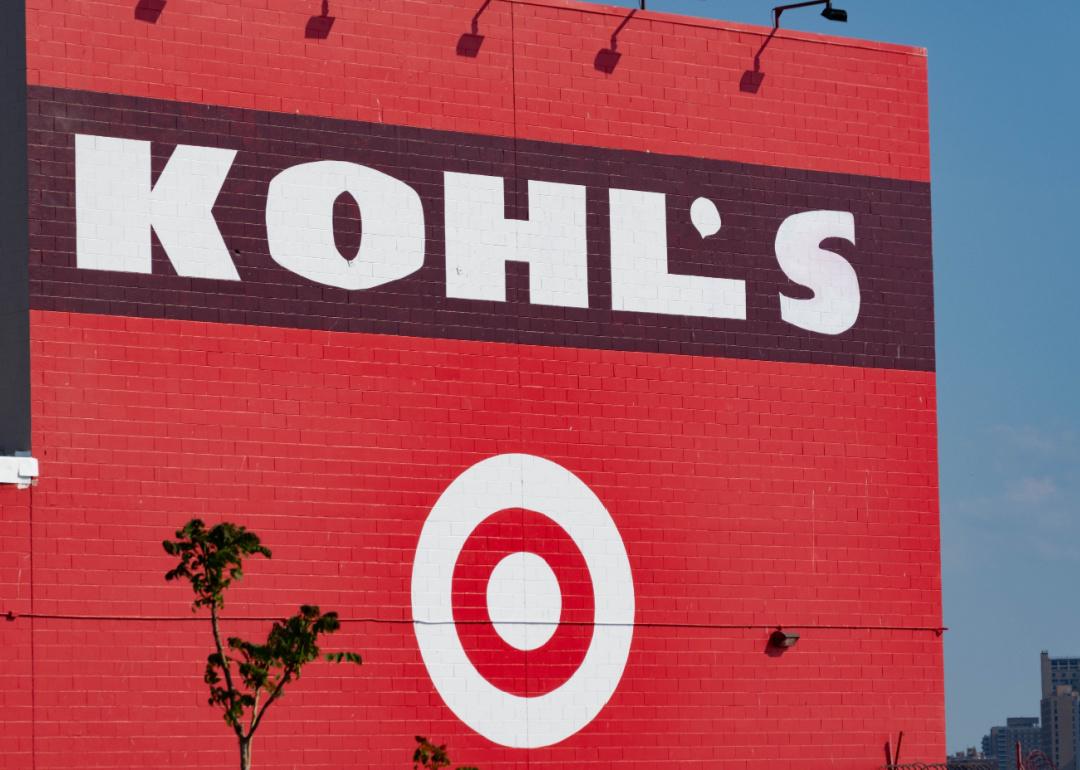
Most popular department stores in America
Most popular department stores in America
Americans have been shopping at department stores since the late 19th century for clothes, food, household goods, and more. Department stores have historically been anchor stores in malls or shopping centers, but today more of these retail outlets are standalone destinations for one-stop shopping for everything from cosmetics to lawn furniture and pet supplies.
Stacker used YouGov ratings data to find the most popular department stores in the U.S. at the end of 2021. Percentages are from a nationally representative survey panel, where the score is calculated by taking the proportion of people who view something positively and showing it as a percentage of all of the people who have given any opinion about that thing, including "have heard of."
Today, brick-and-mortar stores are only one facet of these omnichannel retail chains—each of which now offers varying degrees of e-commerce with in-store pickup and delivery options expedited by the COVID-19 pandemic. Department stores that sell food and cleaning products were deemed essential and able to stay open during the lockdown.
The future of department stores remains murky as more consumers shop online and the "Great Resignation" is affecting retail across the board. Brands are innovating with new technologies, opening store-within-store concepts, and improving their online shopping experience to try to retain customers.
Keep reading to see which U.S. department stores are the most popular.
You may also like: 50 most popular chain restaurants in America
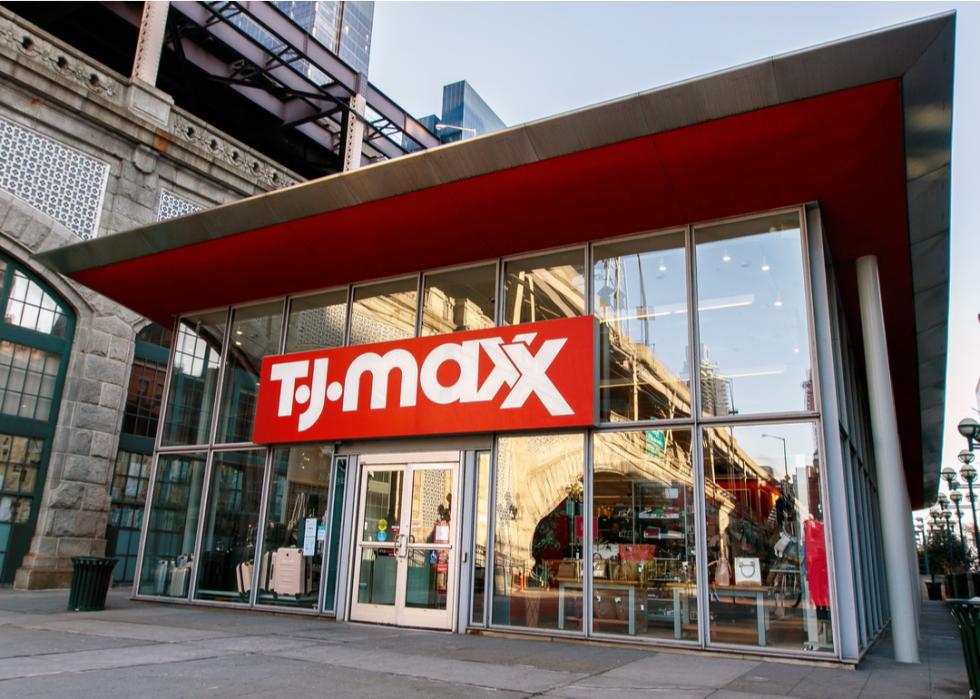
#10. T.J. Maxx
- 56% of people in the U.S. have positive opinions of this store
- 97% of people are familiar with the store
The first T.J. Maxx store opened its doors in 1977. The off-price chain has more than 4,500 stores in nine countries. T.J. Maxx is owned by The TJX Companies Inc., which also owns HomeGoods, Marshalls, and Homesense. Trading under the ticker TJX on the New York Stock Exchange, the company ranked #97 on last year's Fortune 500 list. T.J. Maxx had to scramble during the pandemic to add online retail options, but now offers in-store pickup across all territories, as well as delivery.
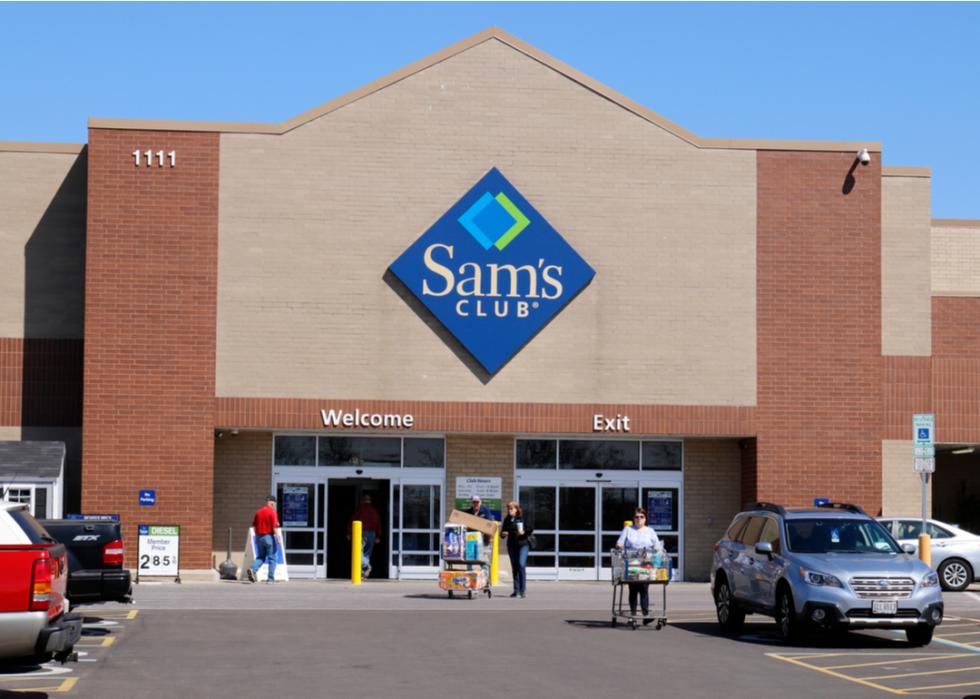
#9. Sam's Club
- 57% of people in the U.S. have positive opinions of this store
- 97% of people are familiar with the store
Sam's Club is a discount membership warehouse club where members can shop for groceries, home goods, and fuel. Owned by Walmart, Sam's Club was founded by Sam Walton in 1983. Sam's Club has almost 600 stores in the U.S., Brazil, China, and Mexico. The Club and Plus membership levels have different perks and annual subscription rates. Members can also take care of other services such as a mail-order pharmacy, financial services, a travel club, and auto services.
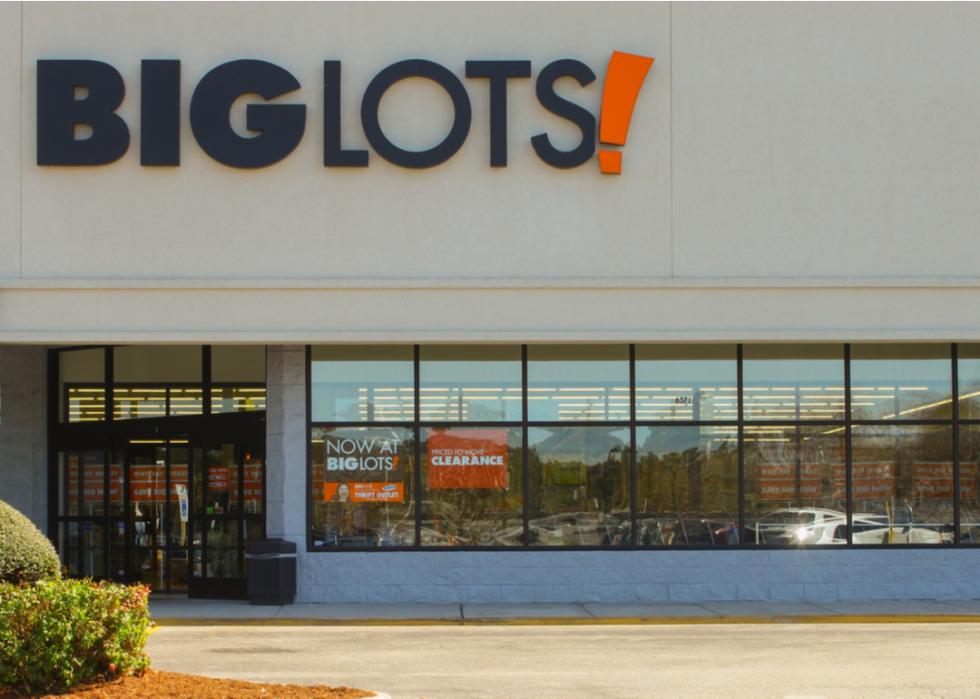
#8. Big Lots
- 57% of people in the U.S. have positive opinions of this store
- 95% of people are familiar with the store
Big Lots was founded in 1967 by Sol Shenk with a focus on auto parts. In 2001, all of the companies owned by Consolidated International, including Big Lots, Odd Lots, Mac Frugal's Bargains Closeouts, and Pic 'N' Save, converged into a single brand. Big Lots is headquartered in Columbus, Ohio, and trades on the New York Stock Exchange under the ticker BIG. Big Lots has more than 1,400 stores in 47 states full of home essentials, clothes, food, and furniture. It also offers curbside pickup and online shopping options.
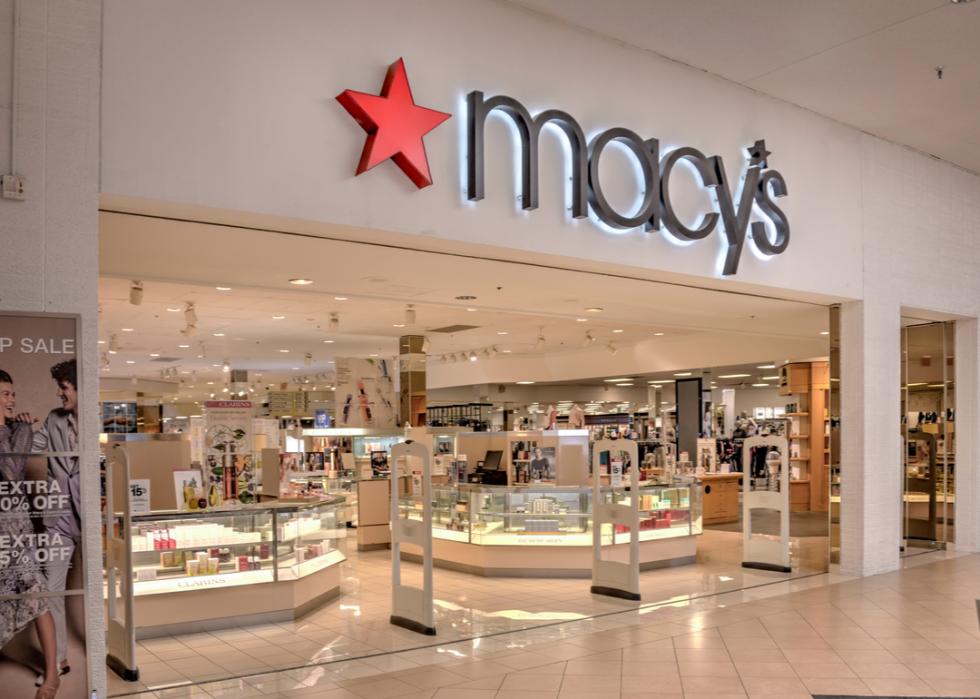
#7. Macy's
- 59% of people in the U.S. have positive opinions of this store
- 97% of people are familiar with the store
The first Macy's was a dry goods store opened in New York City by Rowland H. Macy in 1858. Its flagship store moved to Herald Square in 1902 where it remains to this day. The W. 34th St. location became the largest store in the world following an addition in 1924, the same year Macy's organized its first Thanksgiving Day Parade. In addition to the iconic department store, Macy's owns Bloomingdales and beauty store Bluemercury. In 2020, Macy's announced plans to close 125 brick-and-mortar stores over three years—but it is also opening Toys R Us stores within 400 Macy's stores starting this year.
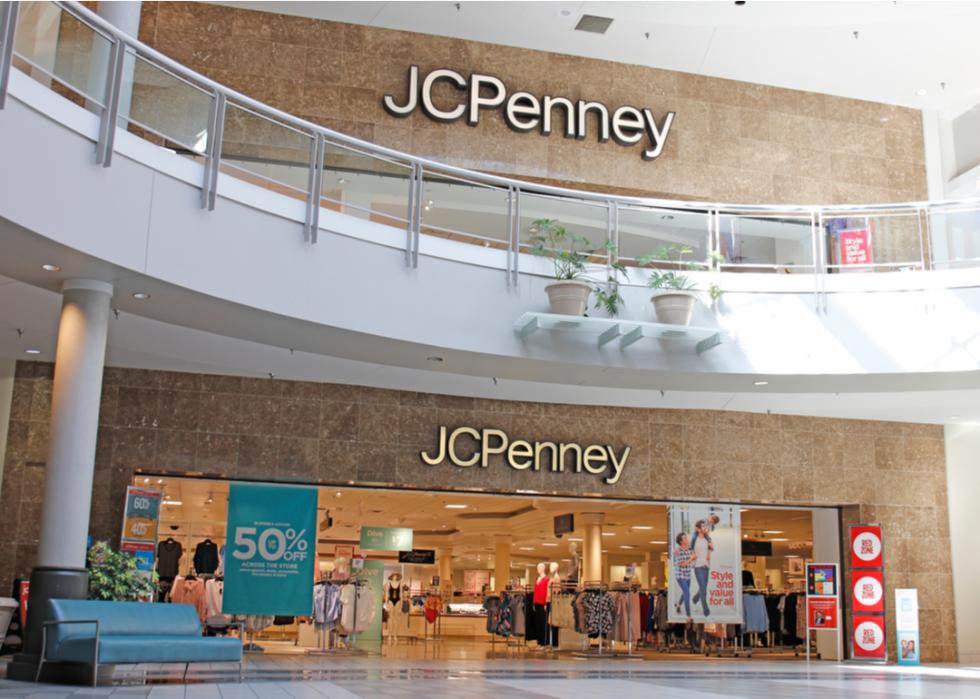
#6. JCPenney
- 60% of people in the U.S. have positive opinions of this store
- 96% of people are familiar with the store
James Cash Penney opened his first store, The Golden Rule, in 1902 in Kemmerer, Wyo. Today JCPenney has 650 stores throughout the U.S. The company welcomed new CEO Marc Rosen in 2021 who aims to strengthen e-commerce for the brand. It's also introducing the fast-fashion brand Forever 21 at 100 stores this year. JCPenney survived bankruptcy in 2020 with Simon Property Group and Brookfield Asset Management purchasing the retailer.
You may also like: The cost of gasoline the year you started driving
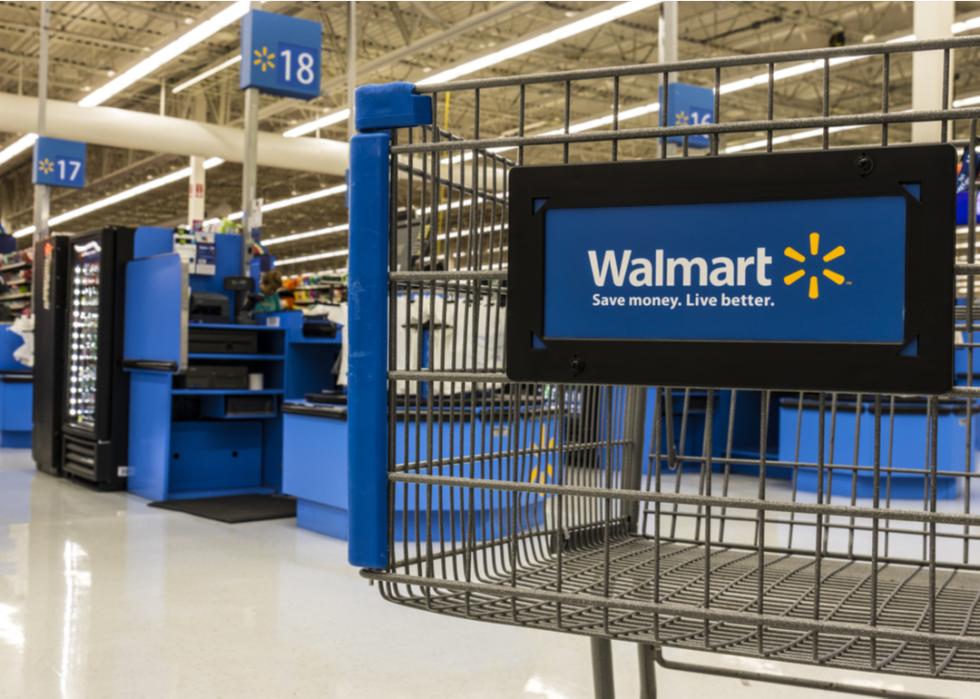
#5. Walmart
- 61% of people in the U.S. have positive opinions of this store
- 99% of people are familiar with the store
The first Walmart opened in Rogers, Ark., in 1962. Founded by Sam Walton, the company went public in 1970. In 1980, Walmart had 276 stores and reached $1 billion in annual sales. George H.W. Bush bestowed the Medal of Freedom on Sam Walton in Bentonville, Ark., in 1992 shortly before Walton died at age 92. Walmart is now venturing into the metaverse with plans to launch a cryptocurrency and issue non-fungible tokens.
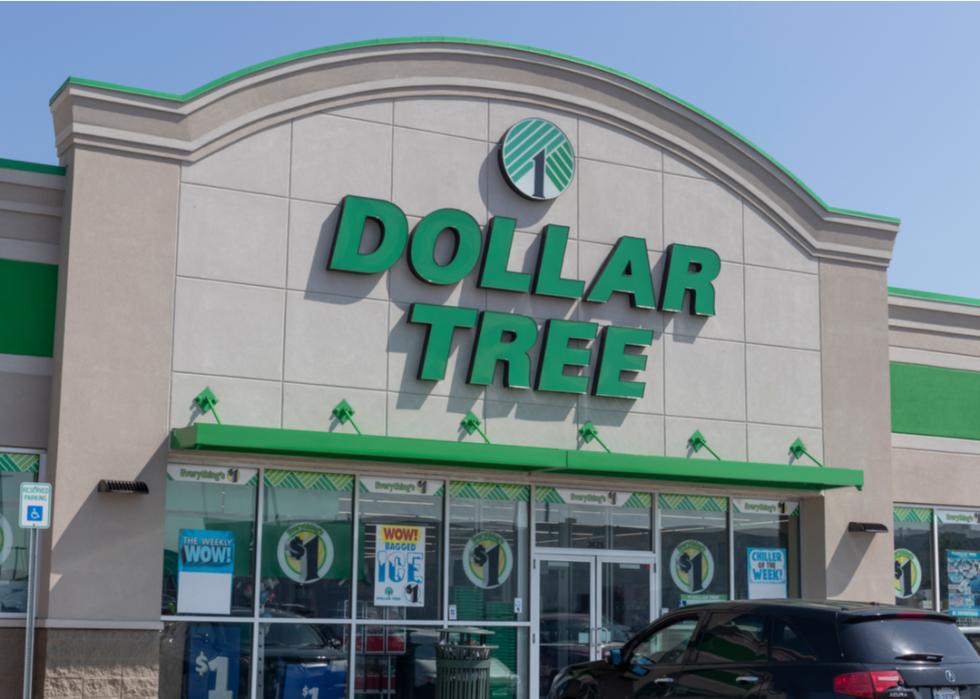
#4. Dollar Tree
- 62% of people in the U.S. have positive opinions of this store
- 98% of people are familiar with the store
Dollar Tree runs fixed-price discount variety stores in the U.S. and Canada. The company also owns Family Dollar, which sells items at various price points. Dollar Tree's origins can be traced back to 1953 when K. R. Perry opened a Ben Franklin variety store in Norfolk, Va., later renamed K&K 5&10. Perry teamed up with Macon Brock and Doug Perry to run K&K 5&10 and K&K Toys and started Only $1.00, which became Dollar Tree in 1993. By May 2022, Dollar Tree plans to raise prices on most of its merchandise from $1 to $1.25.
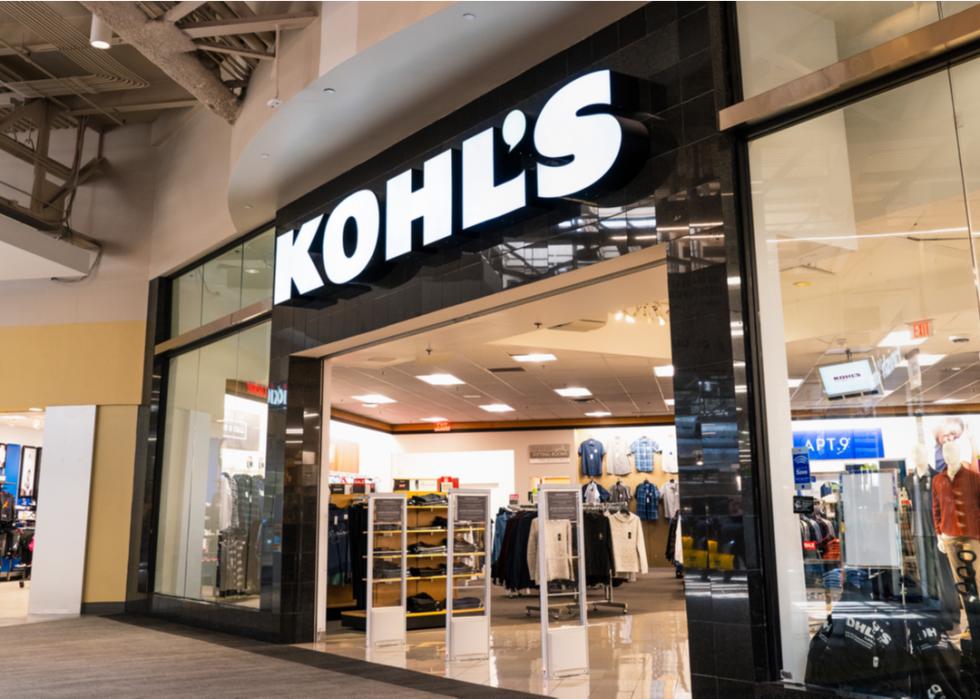
#3. Kohl's
- 63% of people in the U.S. have positive opinions of this store
- 97% of people are familiar with the store
Kohl's operates more than 1,100 stores in 49 states. The first Kohl's department store opened its doors in 1962 in Brookfield, Wisconsin. The company went public in 1992 and started an e-commerce division in 2001. According to company data, 80% of Americans live within 15 miles of a Kohl's store. Kohl's is partnering with Sephora to bring the beauty brand into 850 stores by 2023. It also partnered with Amazon in 2019 and now offers in-person Amazon returns at its stores.
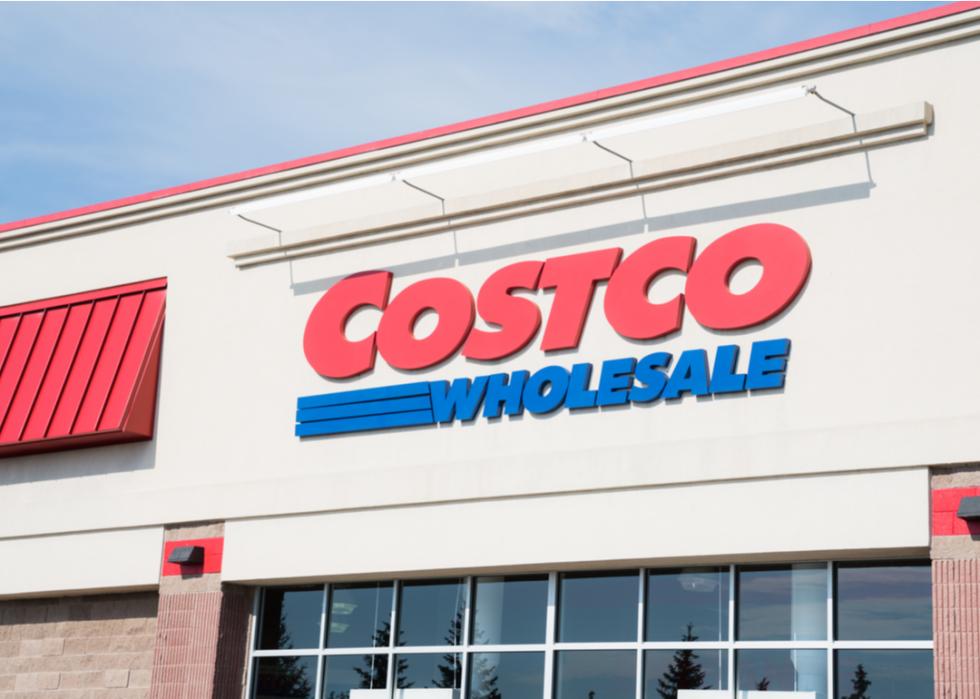
#2. Costco
- 63% of people in the U.S. have positive opinions of this store
- 97% of people are familiar with the store
Costco is a wholesale club headquartered in Issaquah, Washington. Its origins go back to San Diego in 1976 when Sol Price opened Price Club, the first membership warehouse club. The first Costco location was opened in 1983 by Jeffrey Brotman and James Sinegal. In 1993, Price Club was absorbed by Costco and now has stores in North America, Europe, Asia, and Australia. Costco stocks about 4,000 items in its stores, fewer than the average grocery store. Known for treating its employees well, in 2021 Costco raised its starting wage to $17 per hour.
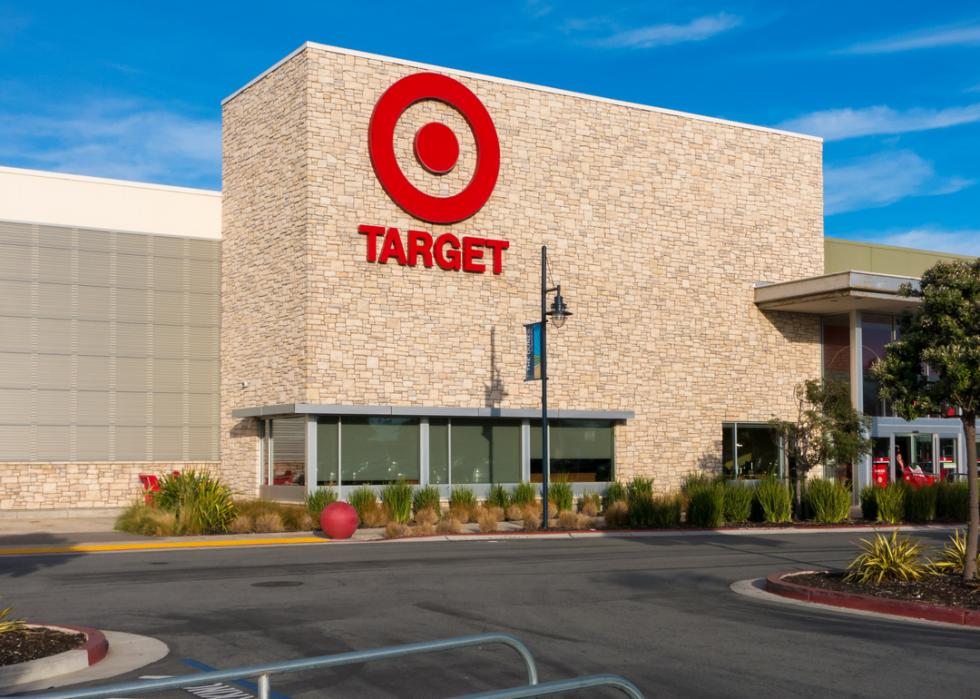
#1. Target
- 71% of people in the U.S. have positive opinions of this store
- 98% of people are familiar with the store
George Dayton started the business that would become Target in 1902 when he opened Dayton Dry Goods Company in Minneapolis. In 1920, the Dayton Company launched WBAH, the most powerful radio station in the midwest, whose broadcasts could be heard in England. In 1962, the Dayton Company launched Target, a discount store with the best features of a department store. There are now nearly 2,000 Target stores across the country. Target has been giving 5% of its profits to charity since 1946 and has pledged $100 million by 2025 to support Black-led organizations.



